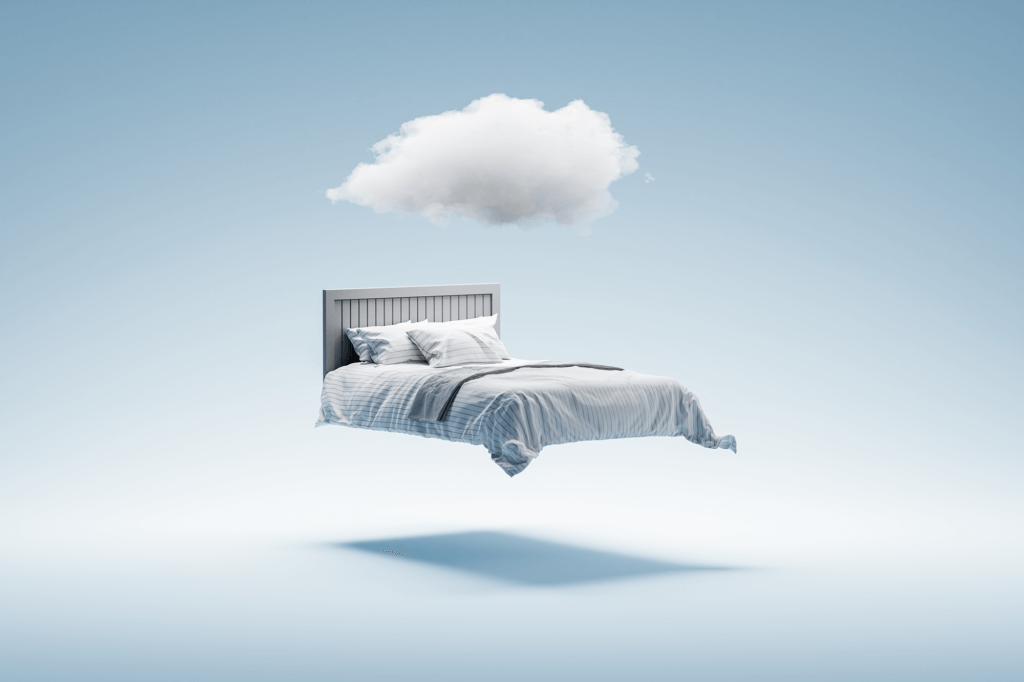Sleep/slumber is one of the most important aspects of our lives. It plays a role in our physical health, mental health, and spiritual health. In this blog post, we will discuss the importance of sleep, different types of sleep disorders, and treatment options available to those who struggle with sleep. We will also hear from experts in the field about their thoughts on sleep and how they help their clients get better rest.
Contents
Understanding Sleep

Sleep is a natural state of mind and body that occurs periodically during the day and night. It is generally characterized by reduced consciousness, decreased bodily movement, and slowed or stopped heart rate and respiration.
Circadian Rhythm
Our bodies have a natural circadian rhythm that helps control our sleep-wake cycles. The circadian rhythm is affected by light and darkness. When it is dark, our body produces melatonin, which makes us sleepy. When it is light, our body produces cortisol, which wakes us up.
Importance of Sleep
Sleep is important for many different reasons. Some of the most common reasons why sleep is important to include:
- Physical health: Sleep is essential for maintaining physical health. It helps to restore energy, rebuild muscles, and repair tissues.
- Mental health: Sleep is essential for maintaining mental health. It helps to regulate mood, reduce stress, and improve cognitive function.
- Spiritual health: Sleep is essential for maintaining spiritual health. It helps to provide a sense of peace and calm, connect with the divine, and increase spirituality.
Types of Sleep
There are two types of sleep: rapid eye movement (REM) sleep and non-rapid eye movement (NREM) sleep.
NREM sleep is further divided into three stages.
NREM Stage:
- I,
- II, and
- III.
REM sleep accounts for around 25% of total sleep time.
During REM sleep, our eyes move rapidly in all directions, and our brain is highly active. This type of sleep is associated with dreaming. Most dreams occur during REM sleep.
NREM sleep is less active than REM sleep, and it is during NREM sleep that we get the most restorative sleep.
Stages of Sleep
There are four stages of NREM sleep: NREM stage I, NREM stage II, NREAM stage III, and NREM stage IV.
Stage:
- I is the lightest stage of sleep. It is during this stage that we are most likely to be awakened.
- II is a deeper sleep, and it is during this stage that our heart rate and respiration slow down.
- III is the deepest sleep, and it is during this stage that we are most likely to experience sleep paralysis and hypnagogic hallucinations.
- IV is a transitional stage between deep sleep and REM sleep.
Types of Sleep Patterns
There are four types of sleep patterns: monophasic, biphasic, triphasic, and polyphasic.
- A monophasic sleep pattern is the most common type of sleep pattern. It is characterized by sleeping for one block of time each night.
- A biphasic sleep pattern is when a person sleeps for two blocks of time, usually two hours each, during the night.
- A triphasic sleep pattern is when a person sleeps for three blocks of time, usually thirty minutes each, during the night.
- A polyphasic sleep pattern is when a person sleeps for more than three blocks of time during the night. Polyphasic sleep patterns are rare and are not recommended.
Types of Sleep Disorders
There are many different types of sleep disorders, and they can affect people of all ages. Some common sleep disorders include:
- Insomnia: Insomnia is a condition that causes difficulty falling asleep, staying asleep, or getting quality sleep.
- Sleep apnea: Sleep apnea is a condition that causes people to stop breathing during sleep.
- Narcolepsy: Narcolepsy is a disorder that causes people to fall asleep suddenly and without warning.
- Sleepwalking: Sleepwalking is a disorder that causes people to walk or perform other activities while they are asleep.
- REM behavior disorder: REM behavior disorder is a condition that causes people to act out their dreams.
- Restless legs syndrome: Restless legs syndrome is a condition that causes an uncontrollable urge to move the legs.
- Periodic limb movement disorder: Periodic limb movement disorder is a condition that causes people to move their limbs repetitively during sleep.
Misconceptions About Sleep
There are many misconceptions about sleep. Some common misconceptions include:
Sleep is a waste of time: Sleep is not a waste of time. It is during sleep that our body restores and repairs itself.
You should avoid caffeine before bed: Caffeine does not necessarily cause problems sleeping. However, it is best to avoid caffeine in the hours before bed.
You should not eat before bed: Eating before bed is not necessarily bad for sleep. It is important, however, to avoid eating large meals close to bedtime.
You can make up for lost sleep on the weekends: You cannot make up for lost sleep. If you do not get enough sleep, you will feel tired and have difficulty concentrating.
You can function fine on less than eight hours of sleep: You cannot function fine on less than eight hours of sleep. Most people need between seven and nine hours of sleep each night.
The more you sleep, the more tired you will be: The less you sleep, the more tired you will be. Most people need between seven and nine hours of sleep each night.
You can’t be hypnotized if you don’t want to be: You can be hypnotized if you do not want to be. However, hypnosis is a voluntary process. If you do not want to be hypnotized, you will not be.
Evaluating Sleep
There are many different ways to evaluate sleep. Some common methods of evaluating sleep include:
- Sleep logs: A sleep log is a record of how well a person slept on specific nights.
- Slumber/sleep diaries: A sleep diary is a record of how much and what kind of sleep a person gets each night.
- Sleep hygiene: Sleep hygiene is the practice of following good habits to promote healthy sleep.
- Multiple Sleep Latency Test: The Multiple Sleep Latency Test is a test that measures how quickly a person falls asleep.
- Pittsburgh Sleep Quality Index: The Pittsburgh Sleep Quality Index is a questionnaire that measures how well a person slept in the past week.
- Epworth Sleepiness Scale: The Epworth Sleepiness Scale is a questionnaire that measures how likely a person is to fall asleep in different situations.
Sleep Deprivation Symptoms
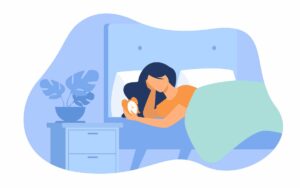
Sleep deprivation can cause a number of different symptoms. Some common symptoms of sleep deprivation include:
- Paranoia: Paranoia is a mistrust of others that can lead to irrational thoughts and fears.
- Hallucinations: Hallucinations are perceptual distortions that occur when a person is awake and sober.
- Mood swings: Mood swings are changes in mood that can range from mild irritability to severe depression.
- Fatigue: Fatigue is the most common symptom of sleep deprivation. It is characterized by feelings of tiredness, lack of energy, and difficulty concentrating.
- Reduced cognitive function: Reduced cognitive function is a decrease in mental abilities, such as memory, decision-making, and critical thinking skills.
- Reduced physical performance: Reduced physical performance is a decrease in the ability to perform physical tasks, such as running or lifting weights.
Ways To Measure Sleep Deprivation
There are many different ways to measure the effects of sleep deprivation. Some common methods of measuring the effects of sleep deprivation include:
- Sleepiness scales: Sleepiness scales are questionnaires that measure how sleepy a person feels.
- Performance tests: Performance tests are measures of how well a person performs certain tasks, such as reaction time or mathematical calculations.
- Brain function tests: Brain function tests are measures of how well the brain functions, such as memory or problem-solving skills.
- Eye movement tracking: Eye movement tracking is a test that uses sensors to track the movement of the eyes.
Measuring Effects of Sleep
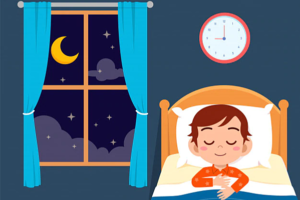
Sleep has a profound influence on both physical and mental health. Though the scientific community has been aware of this for a long time, it is only recently that researchers have started to measure the effects of sleep deprivation in detail.
National Sleep Foundation’s Inaugural Sleep Health Index
The National Sleep Foundation’s inaugural Sleep Health Index provides an overview of how America sleeps and what we can do to get better sleep. According to the report, one in three Americans suffers from poor sleep.
Finding
The study found that people who get less than seven hours of sleep a night are more likely to have heart problems, obesity, diabetes, and high blood pressure. They are also more likely to suffer from stress, anxiety, and depression.
Effects of Sleep On Physical Health
There are many different ways that sleep can affect physical health. Some of the most common ways that sleep can affect physical health include:
Cancer: Cancer is a group of diseases that involve the abnormal growth of cells.
Diabetes: Diabetes is a condition in which the body does not produce or use insulin properly.
Weight gain or obesity: Weight gain or obesity is a condition in which a person accumulates excess body fat.
Cardiovascular disease: A cardiovascular disease is a group of conditions that affect the heart and blood vessels.
Sleep deprivation has also been linked to increased rates of car accidents, industrial accidents, and errors made by medical professionals.
Effects of Sleep On Mental Health
There are many different ways that sleep can affect mental health. Some of the most common ways that sleep can affect mental health include:
Depression: Depression is a condition in which a person experiences feelings of sadness, worthlessness, and hopelessness for extended periods of time.
Insomnia: Insomnia is a condition that involves difficulty falling or staying asleep.
Stress: Stress is a condition that occurs when a person feels overwhelmed or under pressure.
Anxiety: Anxiety is a condition in which a person experiences feelings of unease, worry, and fear for extended periods of time.
Suicidal thoughts: Suicidal thoughts are thoughts about harming oneself in a way that leads to death.
Effects of Sleep On Spiritual Health
There are many different ways that sleep can affect spiritual health. Some of the most common ways that sleep can affect spiritual health include:
Clarity of mind: Many people find that they are better able to think clearly after getting a good night’s sleep.
Sense of peace: Many people report feeling a sense of peace and calmness after a good night’s sleep.
Connection to a higher power: A higher power can be anything that a person believes in, such as God, the universe, or nature.
Improved spiritual well-being: Spiritual well-being is a state in which a person feels connected to something larger than themselves and experiences a sense of peace and happiness.
Sleeping Better, And Sound
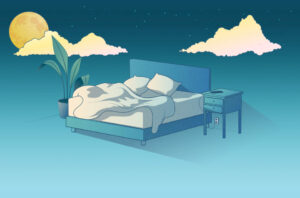
The National Sleep Foundation recommends that adults get seven to nine hours of sleep/slumber per night. There are many things that people can do to get better sleep/slumber and improve the soundness of their sleep/slumber. Some of the most common things that people can do to improve their sleep include:
Self-help Tips
Some simple and effective slumber tips are as follows:
- Get regular exercise: Exercise helps to promote good sleep hygiene.
- Establish a regular bedtime and wake time: This helps to regulate the body’s natural circadian rhythm.
- Avoid caffeine and alcohol before bed: Caffeine and alcohol can interfere with the quality of sleep.
- Avoid working or using electronic devices in bed: Working or using electronic devices in bed can keep people awake.
- Create a relaxing bedtime routine: A relaxing bedtime routine can help prepare the body for sleep.
- Sleep in a dark, quiet, and cool room: Darkness signals the body to produce melatonin, which helps to promote sleep.
Self-help Tools
There are many different self-help tools that people can use to improve the soundness of their sleep/slumber. Some of the most common self-help tools for sound sleep include:
- Noise machines: Noise machines can help to block out sound and create a more relaxing environment.
- White noise: White noise is a type of noise that is made up of all the frequencies in the audio spectrum.
- Sleep supplements: Sleep supplements can help people who have difficulty falling or staying asleep.
- Sleep trackers: Sleep trackers can help people to see how well they are sleeping and identify areas for improvement.
Self-help Techniques
There are many different self-help techniques that people can use to improve the quality of their sleep/slumber. Some of the most common self-help techniques include:
- Relaxation exercises: Relaxation exercises help to calm and relax the body.
- Mindfulness meditation: Mindfulness meditation helps to focus on the present moment and let go of negative thoughts and emotions.
- Guided imagery: Guided imagery involves picturing oneself in a calm and relaxing setting.
- Sleep therapy: Sleep therapy is a type of therapy that helps people to address the underlying causes of their sleep problems.
Talking To Sleep Therapists
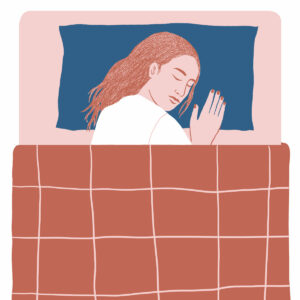
If people are having trouble sleeping, they may want to consider talking to a sleep therapist. Many people find that talking to a sleep therapist can be helpful in improving the quality of their sleep.
A sleep therapist is a healthcare professional who specializes in the treatment of sleep disorders. There are many different types of sleep therapists, and each therapist will have their their own approach to helping people improve their sleep.
Some of the most common types of sleep therapists include:
- Clinical psychologists: Clinical psychologists are mental health professionals who specialize in the treatment of psychological problems.
- Sleep medicine specialists: Sleep medicine specialists are physicians who specialize in the diagnosis and treatment of sleep disorders.
- Behavioral therapists: Behavioral therapists specialize in the treatment of behavioral problems, such as insomnia.
- Cognitive-behavioral therapists: Cognitive-behavioral therapists specialize in the treatment of mental health problems, such as anxiety and depression.
Treatment Options
There are many different types of treatment options for sleep disorders. The type of treatment that is best for a person will depend on their individual needs and preferences.
Some of the most common types of treatments for sleep disorders include:
- Medication: Medication is a type of treatment that involves taking medication to help improve sleep.
- Sleep hygiene: Sleep hygiene is a type of treatment that involves making changes to lifestyle habits that can interfere with sleep.
- Surgical treatment: Surgical treatment is a type of treatment that involves surgery to correct a problem that is causing insomnia or sleep apnea.
- Behavioral therapy: Behavioral therapy is a type of treatment that involves working with a therapist to change the behaviors that are contributing to insomnia.
- Cognitive therapy: Cognitive therapy is a type of treatment that involves working with a therapist to change the thoughts and beliefs that are contributing to insomnia.
NOTE: Sleep disorders can be a difficult problem to deal with, but there are many different types of therapies that can help. If people are having trouble sleeping, they should consider talking to a sleep therapist.
Hearing From Sleep Experts
In this section, we will hear from three different sleep experts. Each expert will share their thoughts on the importance of sleep/slumber. And offer some tips for improving the quality of one’s sleep/slumber.
“Sleep is essential for overall health and well-being. It plays a role in cognitive function, emotional regulation, and physical health.”
-Dr. Michael Breus, clinical psychologist, and sleep expert
“Getting a good night’s sleep is essential for overall health and well-being. It is important for cognitive function, emotional regulation, and physical health.”
-Dr. Michael J. Decker, associate professor of psychiatry at the University of Georgia
“Sleep/slumber is essential for overall health and well-being. It plays a role in cognitive function, emotional regulation, and physical health.”
-Dr. Charles Czeisler, chief of the Division of Sleep Medicine at Brigham and Women’s Hospital
Case Study
Ill-effects of Sleeping Pills
John is a 42-year-old man who has been having trouble sleeping for the past six months. He has tried everything he can think of to improve his sleep/slumber, but nothing seems to work. John’s doctor tells him that he may have a sleep disorder and recommends that he try taking sleeping pills.
John starts taking the sleeping pills and finds that they help him to fall asleep. However, he soon starts to experience some side effects from the medication. He has trouble waking up in the morning, feels drowsy during the day, and is constantly tired.
After a few weeks of taking the sleeping pills, John decides to stop taking them because he doesn’t like the side effects. He finds that he is able to sleep better without them and decides to look for other ways to improve his sleep.
Conclusion
Sleep/slumber is an important part of life. It helps you feel rested and energized for the day ahead. Not getting enough sleep can lead to a number of health problems, including obesity, heart disease, and diabetes.
If you have trouble sleeping, there are a number of treatment options available. Talk to your doctor about the best option for you. There are also many over-the-counter sleep aids available.
Getting a good night’s sleep/slumber is essential for your health and well-being. Follow these tips to get the most out of your slumber!
A Word From Therapy Mantra
Your mental health — Your psychological, emotional, and social well-being — has an impact on every aspect of your life. Positive mental health essentially allows you to effectively deal with life’s everyday challenges.
At TherapyMantra, we have a team of therapists who provide affordable online therapy to assist you with issues such as depression, anxiety, stress, workplace Issues, addiction, relationship, OCD, LGBTQ, and PTSD. You can book a free therapy or download our free Android or iOS app.
